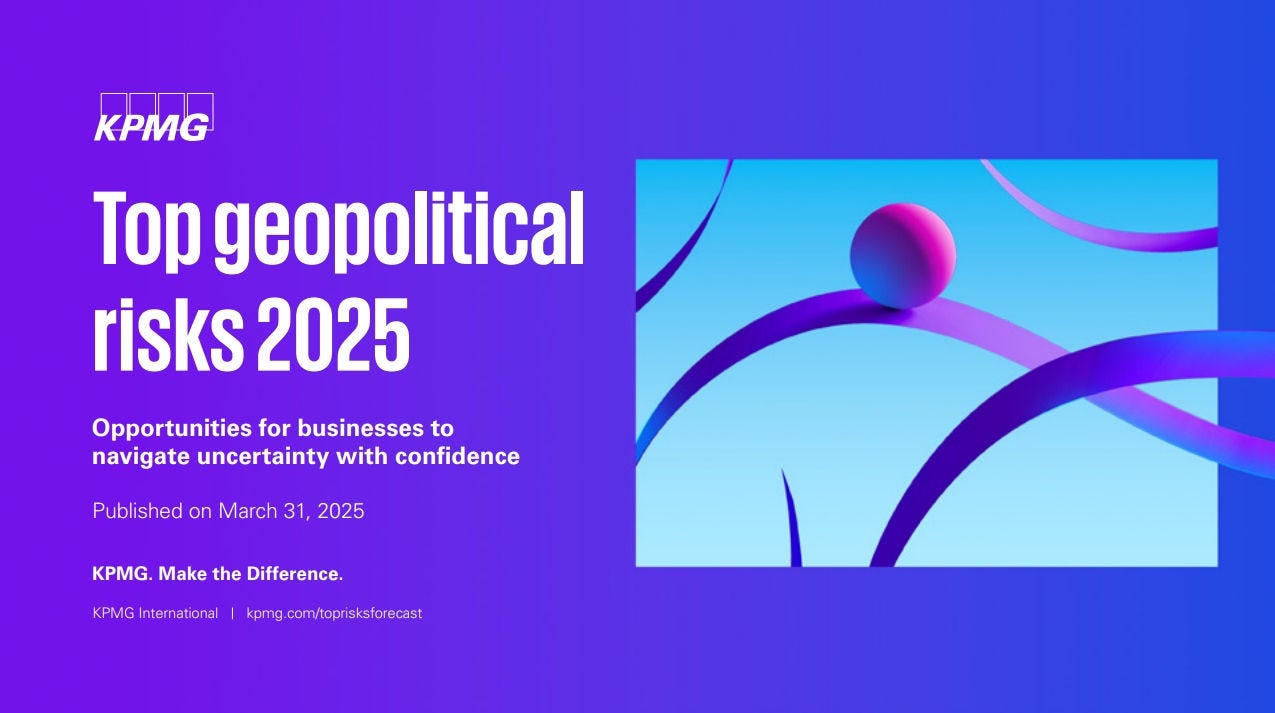As global geopolitics continue to shift, staying ahead of the curve is essential for maintaining a competitive edge. By treating geopolitical risk as a fundamental part of business strategy, companies cannot only address threats but also seize opportunities, paving the way for growth and success.
Top trends
In our report, we have identified five critical trends:
Tectonic shifts in power, economic centers and trade
New trade alliances and investment hubs are redefining global power dynamics. The US is imposing tariffs, eliciting retaliatory responses, while new economic ‘nodes’ are emerging outside of traditional investment centers.
A complex, fragmented regulatory and tax environment
Regulations and tax are evolving at different speeds in different geographies. Minimum global tax is becoming adopted by many countries, while others are withdrawing from multilateral tax policy.
A fast-moving and politicized technology landscape
Shifting alliances (based upon national security concerns) and fragmented regulations add to complexity, while the emergence of new Generative AI (Gen AI) players challenges US dominance. Regulators are struggling to keep pace with new Gen AI solutions, and a rolling back of regulations could leave AI models out of control. Geopolitical competition in AI and other technologies (i.e. quantum computing) is creating technological blocs around the US and China, thus jeopardizing international cooperation and access.
Multiple threats to supply chains, assets and infrastructure
Geopolitical rivalries, trade protectionism, conflict, competition for resources, cyberattacks and climate events place severe strains on globally exposed businesses. Wars and tensions pose rising threats to key shipping choke points. Countries are adopting protectionist measures to safeguard and diversify their supply chains, including energy, food and critical minerals.
Demographic, technological and cultural pressures on workforces
Aging populations, mass retirement, falling birth rates (in developed markets), changing worker preferences, culture wars, AI integration and reskilling bring major workforce challenges.
What are the opportunities for business leaders?
The world has become a much more geopolitically complex place, and these complexities are only expected to grow. Business leaders need to focus on building strategies and frameworks that take their geopolitical response from reactive to proactive, including developing holistic geopolitical risk management approaches.
Following are five key steps business leaders can think about today to help mitigate risk and capitalize on opportunities:
- Broaden sources of investment capital, including increasing private capital.
- Build stronger compliance capabilities to monitor and respond to evolving regulations.
- Improve resilience and reputation through cybersecurity and data governance.
- Build geographically shorter, simpler supply chains, along with considering friend-shoring.
- Focus on and invest in corporate culture to help ensure alignment with changing values and workforces.

